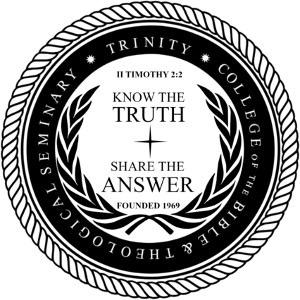Related Research Articles

A community college is a type of educational institution. The term can have different meanings in different countries: many community colleges have an "open enrollment" for students who have graduated from high school. The term usually refers to a higher educational institution that provides workforce education and college transfer academic programs. Some institutions maintain athletic teams and dormitories similar to their university counterparts.

The Bologna Process is a series of ministerial meetings and agreements between European countries to ensure comparability in the standards and quality of higher-education qualifications. The process has created the European Higher Education Area under the Lisbon Recognition Convention. It is named after the University of Bologna, where the Bologna declaration was signed by education ministers from 29 European countries in 1999. The process was opened to other countries in the European Cultural Convention of the Council of Europe, and governmental meetings have been held in Prague (2001), Berlin (2003), Bergen (2005), London (2007), Leuven (2009), Budapest-Vienna (2010), Bucharest (2012), Yerevan (2015), Paris (2018), and Rome (2020).

In education, a curriculum is broadly defined as the totality of student experiences that occur in the educational process. The term often refers specifically to a planned sequence of instruction, or to a view of the student's experiences in terms of the educator's or school's instructional goals. In a 2003 study, Reys, Reys, Lapan, Holliday, and Wasman refer to curriculum as a set of learning goals articulated across grades that outline the intended mathematics content and process goals at particular points in time throughout the K–12 school program. Curriculum may incorporate the planned interaction of pupils with instructional content, materials, resources, and processes for evaluating the attainment of educational objectives. Curriculum is split into several categories: the explicit, the implicit, the excluded, and the extracurricular.

Charter Oak State College is a public online college based in New Britain, Connecticut. The college was founded in 1973 by the Connecticut Legislature and offers associate, bachelor's, and master's degrees. The college is adjacent to Central Connecticut State University and is named for Connecticut's famous Charter Oak.

Avon Grove High School is a public high school located in Southern Chester County, Pennsylvania, United States. It is part of the Avon Grove School District.

West York Area High School is a high school located in York, York County in south central Pennsylvania. According to the National Center for Education Statistics, the school reported an enrollment of 952 students in grades 9 through 12 in 2010, with 255 students eligible for a federal free or reduced-price lunch. The school employed 71 teachers, yielding a student–teacher ratio of 13:1. According to a report by the Pennsylvania Department of Education, one teacher was rated "Non‐Highly Qualified" under No Child Left Behind.
The Jeannette City School District is a small urban school district in Southwestern Pennsylvania. It is located in Westmoreland County and is surrounded by the Penn-Trafford and Hempfield Area School Districts. The district consists of two schools, McKee Elementary School (PK-6) and the Jeannette Junior-Senior High School (7-12).

Trinity College of the Bible and Theological Seminary, also known as Trinity College of the Bible, is a conservative evangelical Bible college and seminary located near Evansville, Indiana. Trinity offers distance education programs at undergraduate, graduate, and doctoral degree levels for self-directed adult learners. Programs include Certificate, Associate, Bachelor, Master, and Doctorate studies. In 2006, Trinity claimed more than 7,000 active students worldwide.
College transfer is the anticipated movement students consider between education providers and the related institutional processes supporting those secondary and post-secondary learners who actually do move with completed coursework or training that may be applicable to a degree pathway and published requirements.
Transfer credit, credit transfer, or advanced standing are the terms used by colleges and universities for the procedure of granting credit to a student for educational experiences or courses undertaken at another institution. This is a subset of Recognition of Prior Learning.
Kennett High School is the only public high school in the Kennett Consolidated School District and is located in Kennett Square, Pennsylvania, United States. The school averages around 1300 students and 100 faculty members. The Kennett Consolidated School District Office is located next to the high school.
A bridge program is a partnership in Canada between two post-secondary institutions that allows students to transfer college credits from one institution to another. A bridge program student typically holds a two-year college degree and wants to obtain a four-year or graduate degree.

Higher education in Alberta refers to the post secondary education system for the province of Alberta. The Ministry of Advanced Education in Alberta oversees educational delivery through universities, publicly funded colleges, technical institutions, and private colleges. These institutions offer a variety of academic and vocational pursuits. Students have access to post-secondary options through most regions of Alberta, and a developed articulation system allows for increased student mobility.

In the United States, community colleges, are primarily two-year public institutions of tertiary education. Many community colleges also offer remedial education, GEDs, high school diplomas, technical degrees and certificates, and a limited number of 4-year degrees. After graduating from a community college, many students transfer to a university or liberal arts college to complete a bachelor's degree, while others enter the workforce.
Bradford Area High School is a public high school providing grades 9-12. It is located in Bradford, Pennsylvania, in the north central region of the Commonwealth. The current principal is David Ray. In 2010 the enrollment was 941. The Pennsylvania Department of Education has projected enrollment will decline to 700 for the Class of 2020. The demographics of the students body are: 95% of the students are white, while 1% are black, 1% are Hispanic, 1% are Asian and 2% are American Indian.
The Quaker Valley School District is a school district covering the Boroughs of Sewickley, Leetsdale, Edgeworth, Glen Osborne, Sewickley Hills, Sewickley Heights, Bell Acres, Haysville, Glenfield, as well as the townships of Leet and Aleppo Townships in Allegheny County, Pennsylvania. The district operates Quaker Valley High School (9th-12th), Quaker Valley Middle School (6th-8th), Edgeworth Elementary School (K-5th), and Osborne Elementary School (K-5th). The district is also responsible for the maintenance of the building that houses Sewickley Public Library.
Marion Technical College, often referred to as Marion Tech or MTC, is a public technical college in Marion, Ohio on a campus that is shared with Ohio State University at Marion. Founded in 1970 with classes beginning in 1971, MTC has awarded over 7,500 associate degrees. The college offers associate degrees, certificates, and transfer programs in the areas of Business, Engineering, Information Technology, Public Service, Health, and Arts and Sciences. The college practices open admissions. High school students comprise about 42% of MTC's enrollment.
Union Junior/Senior High School is a small, public High School, located in Rimersburg, Clarion County. The school is part of the Union School District. The school campus is home to approximately 375 students and 30 Faculty Members. Students, at their choosing, have the opportunity to attend Clarion County Career Center if they desire to pursue a vocational trade.

Transfer admissions in the United States refers to college students changing universities during their college years. While estimates of transfer activity vary considerably, the consensus view is that it is substantial and increasing, although media coverage of student transfers is generally less than coverage of the high school to college transition. A common transfer path is students moving from two-year community colleges to four-year institutions, although there is also considerable movement between four-year institutions. Reasons for transferring include unhappiness with campus life, cost, and course and degree selection. There are no standardized rules nationwide for transfers, and requirements vary by college. However, many states have taken steps to make the transition easier and less problematic, particularly from community colleges to four-year schools within the state, by various methods including school-to-school credit arrangements called articulation agreements. While many state universities are constrained by budget cuts which have sometimes lessened the number of spots open to transfer students, there are reports that many private colleges are becoming more assertive in seeking transfer applicants. Nevertheless, the transfer process can be difficult, such that transfer applicants have been described as collegiate "academic nomads" who face various obstacles trying to make sure their credits transfer properly to their new school. Unlike admission from high school directly to college, there is less data nationwide about transfer admissions, although there are signs that this is changing.
Alternative pathways in education are alternative means of obtaining educational qualifications, other than the traditional means of gaining access to or completing the required study to obtain the educational qualifications.
References
- ↑ McGreal, Rory (2012). Online Education Using Learning Objects. Open and Flexible Learning Series (in French). Taylor & Francis. p. 25. ISBN 978-1-134-11679-9 . Retrieved 2020-08-25.